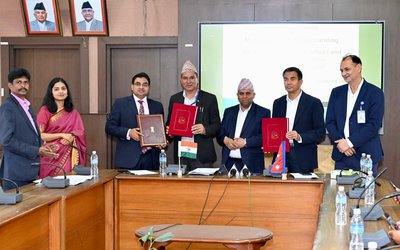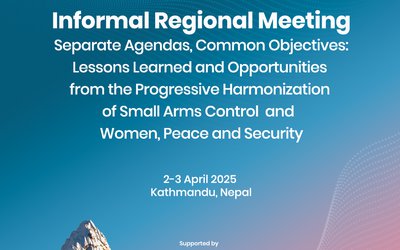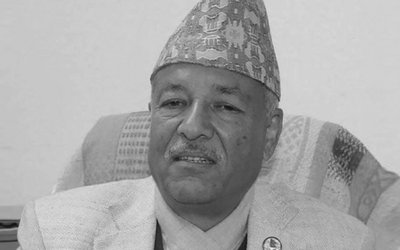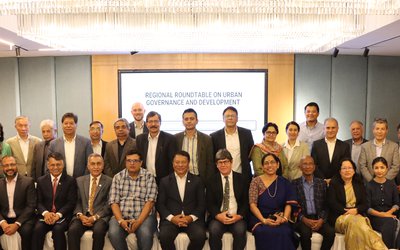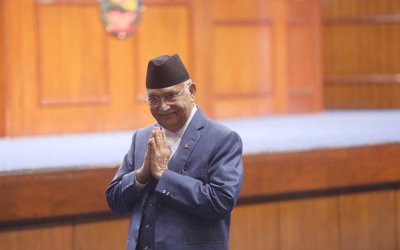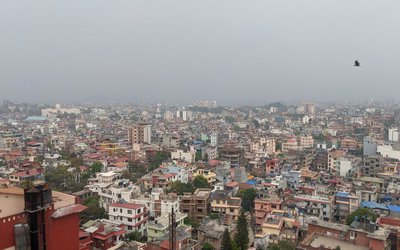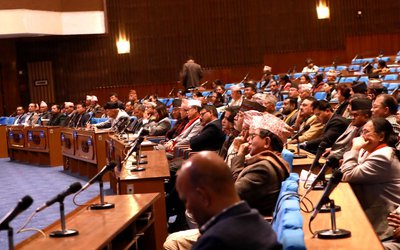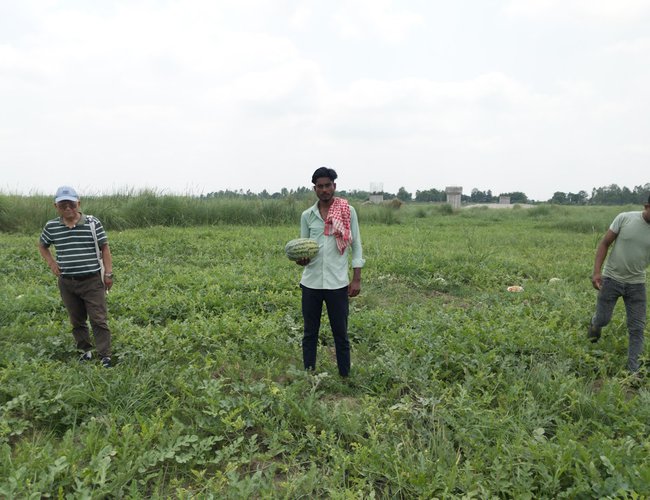
In the southern reaches of Nepal, particularly in the fertile plains bordering the Kankai River, the Mandal community of Kankai River and Koshi province has long been known for its susceptibility to flooding. Historically, the Mandal community, which is predominantly made up of landless ethnic groups and individuals from the lower economic strata, has been forced to live in areas prone to floods. These areas, though rich in soil, are regularly flooded, forcing the community to grapple with the constant threat of food scarcity and nutritional deficiencies. However, in a moment of resilience and ingenuity, the community has turned to riverbed farming as a means of survival.
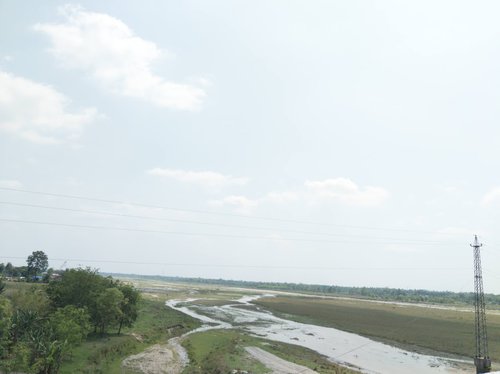
Kankai River
Originating from the Mai Pokhari of Ilam district in eastern Nepal, the Kankai River is infamous for its annual floods that wreak havoc on the plains of Jhapa and eastern Bihar, destroying crop fields and settlements in the southern areas during the rainy season. In Jhapa alone, the floods of the Kankai River and its tributaries have impacted over 500 households, most belonging to marginalized and impoverished communities.
Riverbed farming, despite its historical skepticism, has emerged as a beacon of hope for these communities. Birbal Mandal, a 27-year-old resident of Mandal Basti in Kankai Municipality Ward No. 5, has demonstrated that even the Kankai River, known for its annual troubles and destruction, can also be a source of prosperity and contentment. By adopting riverbed farming practices on the banks of the Kankai River, over 80 households of the Mandal community have been able to transform their fortunes.
In a groundbreaking initiative by Helvetas-Nepal, riverbed farming was introduced in 2013 initially to 12 households at the Kankai River's edge. At that time, the community was living in dire conditions, with most of them forced to leave their homes each year to seek employment elsewhere, relying on the sale of small amounts of vegetables and watermelons for sustenance.
There was little knowledge or understanding of farming techniques, leaving the land once seen as productive barren. This situation has since changed dramatically, with all river banks being converted into productive agricultural spaces. The demand for land has increased, leading to higher rental fees from landowners near the river banks.
The initial steps taken by Helvetas-Nepal's project included providing the community with new skills and knowledge in farming techniques, understanding soil quality, seed selection homemade fertilizers, pesticides, optimal planting and harvesting times, and market chains. The project effectively taught he community how to cultivate different crops more efficiently.
Mandal, who has been a part of the project, expressed the transformative impact: "In the beginning, we learned how to prepare the soil for various vegetables, how to identify soil quality, the best times to plant and harvest, and how to manage pest control naturally. The project has not only us how to farm more effectively but has also been instrumental in addressing our nutritional needs."
Similar to Mandal, eighty Mandal families have been growing various vegetables and watermelons along the riverbanks of Kankai, spanning from October to May. Farmers are making around Rs. 400,000 (US$2,500) per acre during each session. The majority of these households are growing vegetables and watermelons on at least 5 to 10 acres (3.95 acres equal 1 hectare), earning an annual income of around Rs 1.5 million (US$13,000 to Rs 3 million (US$26,000)).
Mandal, currently cultivating 6 acres, is earning close to Rs 1.8 million annually. By purchasing a tractor, two motorcycles, and an additional acre of land, Mandal has moved to a cemented house.
"All of us live in concrete houses, have vehicles, and have enough money to afford food. No one goes hungry," said one community member.
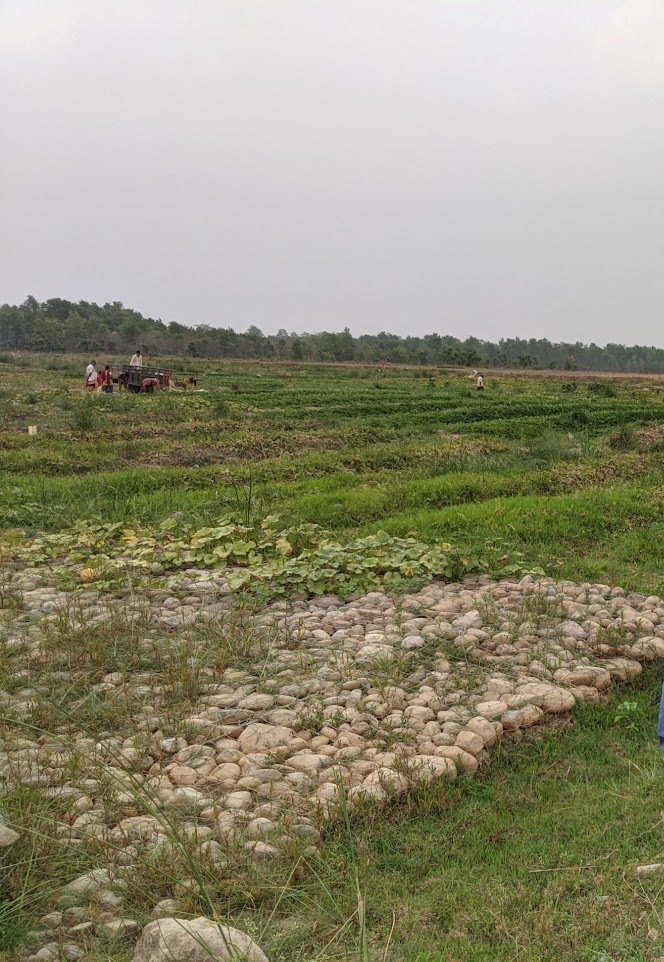
Watermelon in Kanakai River
"Helvetas-Nepal has expanded its initiatives in Kailali and Kanchanpur, in the eastern part of Nepal, including Jhapa," Hari Gurung, the team leader, mentioned. "River bed farming has significantly improved the livelihoods in the Mandal Basti and other areas in the region," he added.
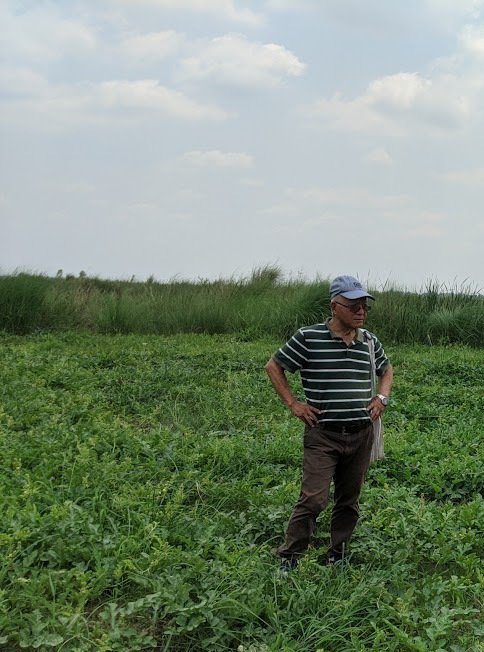
Hari Gurung, Team Leader Helvetas Nepal
In the past decade, Mandal Basti has undergone a significant transformation. The transition from traditional mud houses to concrete ones has led to better food security and nutritional stability for the Mandal families.
50-year-old Lukhari Mandal recounts the struggles and challenges faced by the community. "We were always on high alert for flood damage and spent six months a year working outside the village. We also grew vegetables, carrying buckets on our heads to sell them." Since the inception of river bed farming ten years ago, everything has changed for the better. The Mandal families now have all necessary resources including knowledge, concrete homes, tractors, and motorcycles.
Lukhari has brought his son back from Malaysia because his son is earning only about one-fourth of his two sons' earnings abroad. "Why should I send my son away when I can earn more here?" he questioned. With an annual income of about Rs 2.2 million, he feels this is a reasonable question. He believes that Helvetas-Nepal through its local partner has truly changed their lives for the better.
Tanka Acharya, an officer from Forward, was instrumental in transforming the community. He worked tirelessly to introduce farming skills, provide technical support, and facilitate market access. "All these components work in harmony to bring prosperity," he said. Mandal, who is currently tending to 5 acres of land, earns an annual profit of about Rs 1.8 million.
Mandal, who has been cultivating watermelons and other seasonal crops like cucumbers, pumpkins, and karela, among others, has seen a significant increase in his earnings, almost reaching a million rupees. Moreover, he has acquired one bigha of land along the Kankai River bank, further testament to his success.
This success story has had a positive impact on the region. It's not just the marginalized and backward communities that have benefited; others have also taken up river bank cultivation.
With the rising demand for land in the Kankai Municipality, Mandal communities are seeking opportunities in neighboring areas such as Shivasatakshi Municipality and Jhapa Rural Municipality, in search of additional land to expand their vegetable and watermelon cultivation.
Successfully implementing river bed farming in the Sudur Paschim Province from 2006 to 2013, Helvetas Nepal has expanded its efforts to Koshi and Madhesh Provinces to share its successful model. Over a decade, families in Jhapa, Morang, Koshi, Madhesh Provinces, including Jhapa, Morang, Koshi, Madhesh Provinces, have seen more success than their counterparts in Western Nepal.
Although river bed farming has gained popularity across all 22 Terai districts of Nepal, the Mandal community has taken it a step further by expanding their practices, increasing their cultivated areas, and earning substantial income from these efforts. Their approach is vastly different from those in other regions, where river bed farming areas per person are still small in comparison to the Mandals, who now lease larger areas for commercial farming.
Tanka Acharya, the for FORWAD, the local partner of Helvetas Nepal, highlights the importance of the technical intervention and market connections as the primary reasons for the Mandals' success. He also stresses the necessity of government support from the local to the national level.
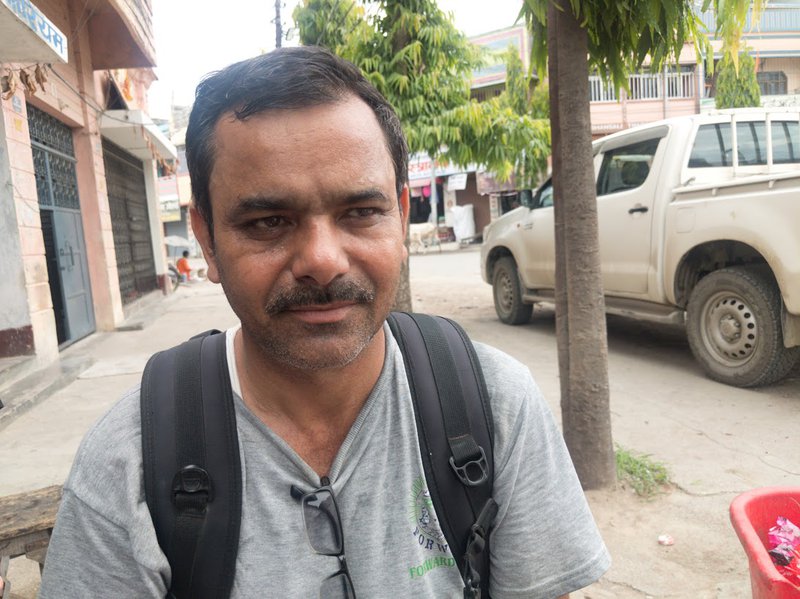
Tanka Acharya
Connected to the market chain, the produce from the Mandal community, particularly vegetables and watermelons, is now being exported to India, reaching markets in the east and the west.
Mandal, who previously sold her produce in small quantities, struggling with transporting them in person, has seen a remarkable shift in her circumstances. Today, vendors come to her with vehicles, handling the cash transactions on the spot.
"The situation has improved significantly," Mandal noted. "We now have access to better support from the municipality, including irrigation equipment, shade, water containers, and more."
Dr. Prabin Manandhar, the Country Director of Helvetas Nepal, praised the project for its positive impact on Nepal, offering hope in solving the issues faced by the large numbers of landless and land-poor individuals, enabling them to prosper through river bed farming. He also pointed out the positive response from the Federal, Provincial, and Local governments in recognizing the significance of river bed farming.
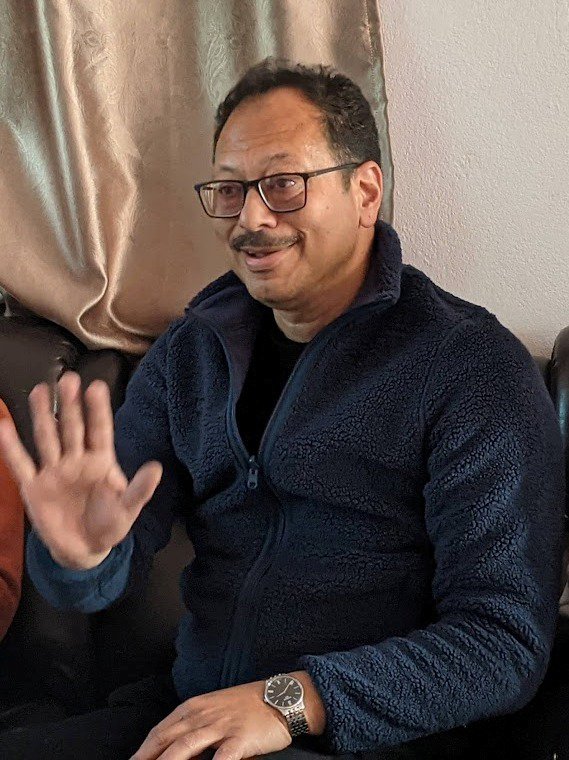
Dr. Prabin Manandhar, Country Director, Helvetas-Nepal
Shivasatakshi Municipal Council has issued a call for bids to construct a in Shivaganj.
This municipality, boasting a population surpassing 100,000, has adopted significant policies and initiatives aimed at boosting economic growth by creating more employment opportunities and reducing poverty levels through agricultural development.
The area is highly suitable for agricultural growth, with over 65% of its land being fertile and a vast river bed currently underutilized.
"Many individuals are adopting modern farming techniques, including river bed farming, but the absence of agricultural market facilities and storage solutions has led to product wastage," Rajendra Kumar Pokharel, the mayor of Kankai Municipal Council, stated.
To encourage more river bed farmers, Shivasatakshi Municipal Council, a neighboring entity of Kankai Municipal Council, has unveiled a bold strategy to build a wholesale agriculture market at Shivaganj Bazar. The municipality has allocated funds for the development of a project proposal for the Shivaganj Agricultural Market with assistance from the Ministry of Agriculture and Livestock Development of the Koshi Province.
Deputy Mayor of Shivasatakshi Municipality, Naramaya Karki, expressed the municipality's enthusiasm for promoting river bed farming. It aims to encourage river bed farming practices along the Kankai and Kamal rivers.
Agricultural activities have grown from the Mandal Basti area of ward no 6 in Kankai Municipal Council. Following the completion of a project by Helvetas Nepal, river bed farming has become a critical support system for the region. With the collaboration of local and provincial authorities, it is helping to address the challenges faced by landless and land-poor individuals.
River bed farming is seen as a viable strategy to increase household income and enhance food security for families who are landless or land-poor in the Western Tarai region of Nepal, as Hari Gurung, the project team leader, mentioned.
In 2006, the program Elam Plus, an initiative of Helvetas Nepal focused on informal sector micro enterprise development and job creation, introduced river bed farming to 670 farmers, primarily from the Tharu indigenous community, adopting a more advanced method. The project saw the cultivation of 43 hectares in its first year.
Research indicates that around 20% of households in the Terai, the plains in the southern part of Nepal, lack ownership of land, a figure expected to rise due to continuous encroachment and conversion of arable land to wetlands and river banks that flood annually.

Keshab Poudel
Poudel is the editor of New Spotlight Magazine.
- FM Dr. Deuba’s India Visit: Mission Aborted
- Mar 26, 2025
- AMBASSADOR MAEDA TORU: Warm Regards
- Mar 24, 2025
- PRO-MONARCHY MOVEMENT: Rising Dissatisfaction
- Mar 23, 2025
- Dr. PRABIN MANANDHAR: Person With Humility
- Mar 16, 2025
- US SUSPESION OF GRANT: Impact On Nepal
- Mar 10, 2025

